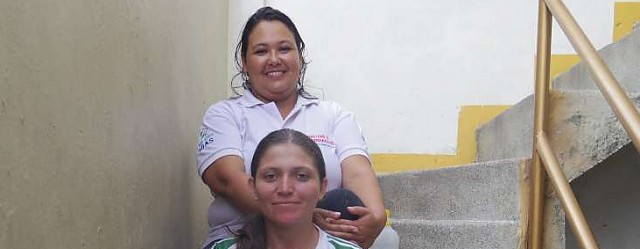Home > Where We Work > Americas > 30th Commemorative Anniversary of the Cartagena Declaration on Refugees > Brazil Plan of Action – One year of Implementation
Brazil Plan of Action – One year of Implementation

Comprehensive Solutions
Finding both traditional and innovative durable solutions, including voluntary repatriation, local integration, resettlement and labour mobility programmes with protection safeguards, in particular for those living in protracted situations such as Colombians, the largest group of refugees in the region.
2014-2015 Progress
Solidarity Resettlement Programme
UNHCR Ecuador submitted 1,142 individuals for resettlement between January and November 2015, with the vast majority being Colombian refugees. Some of these refugees resettled within the region, in Brazil and Uruguay. As planned in the BPA, an independent evaluation of the Solidarity Resettlement Programme was undertaken in Argentina, Brazil, Chile, Paraguay, and Uruguay, and a draft report has been presented to involved Governments. The evaluation will assist stakeholders to understand what has gone well, gather feedback from the refugees themselves, share best practices, and makes recommendations for a way forward.
Other forms of admission
As an expression of solidarity, the Chilean Government reactivated its Resettlement Programme for Syrian refugees and Brazil extended 8,000 humanitarian visas to Syrians and others affected by the Syrian conflict. Brazil also signed a technical cooperation agreement with UNHCR to improve the process of granting the special visa more efficient and secure. Another aim is to improve the process of identifying people with specific needs, affected by the Syria conflict, who may qualify for a special visa for Brazil, potentially benefitting. The Government of Brazil also granted permanent residency on humanitarian grounds to 43,700 Haitians living in the country, who were forcibly displaced by the 2010 earthquake. Also Argentina extended and revised its humanitarian visa programme for Syrians for another year. In Chile, public funding for refugees and migrants was increased and the municipality of Quilicura strengthened its programme for refugees and migrants. In Bolivia, a practical guide for refugees was developed and a specific coordination mechanism chaired by CONARE was established, which is expected to facilitate the implementation of local integration and livelihoods strategies.
Local Integration Programme
In Costa Rica and Ecuador, important achievements were obtained in securing the legal, socio-economic and cultural integration of refugees through innovative multi-year initiatives, which aim at identifying inclusive and sustainable solutions. In this context, the graduation model was piloted in both countries, involving more than 650 families, and is already providing promising results. By equipping each household with the skills and means to generate income to break the cycle of dependency, the project's gradual but systematic approach is designed to create a self-sustaining safety net to lift refugees and nationals in vulnerable conditions from poverty to improved living conditions and more stable livelihoods. In Ecuador, this approach will be extended to all parts of the country where UNHCR and its partners operate. In Costa Rica, the graduation approach was included in the National Development Plan (2015-2018). In Brazil, the commitment to integrate refugees is being realized through greater investment in integration projects, and a series of initiatives to provide comprehensive and updated information for refugees on local integration.
Labour Mobility Programme
As a way to operationalize the labour mobility concept, Brazil approved CONARE's Normative Resolution #19 in December 2014, regulating the Regional Mobility and Socioeconomic Integration of Colombian Refugees pilot project. The two countries are pursuing discussions to consider a possible project for implementation in 2016.
As planned, an independent study on migratory alternatives for refugees under the framework of the MERCOSUR regional migratory policy was finalised and distributed to governments and stakeholders in the region. Key findings and recommendations were discussed at the meeting of the MERCOSUR CONAREs in November 2015. The Study concludes that the current migratory system in the MERCOSUR (the Residence Agreement) offers a unique opportunity to facilitate the mobility of refugees and expand their prospects for finding durable solutions. However, MERCOSUR countries should explore the possibility of incorporating specific protection safeguards based on International Refugee Law and International Human Rights Law. The Labour Mobility Programme is also an example of bilateral solidarity to provide alternative solutions for refugees in the region.